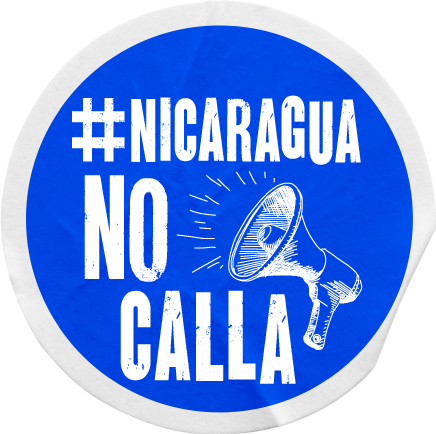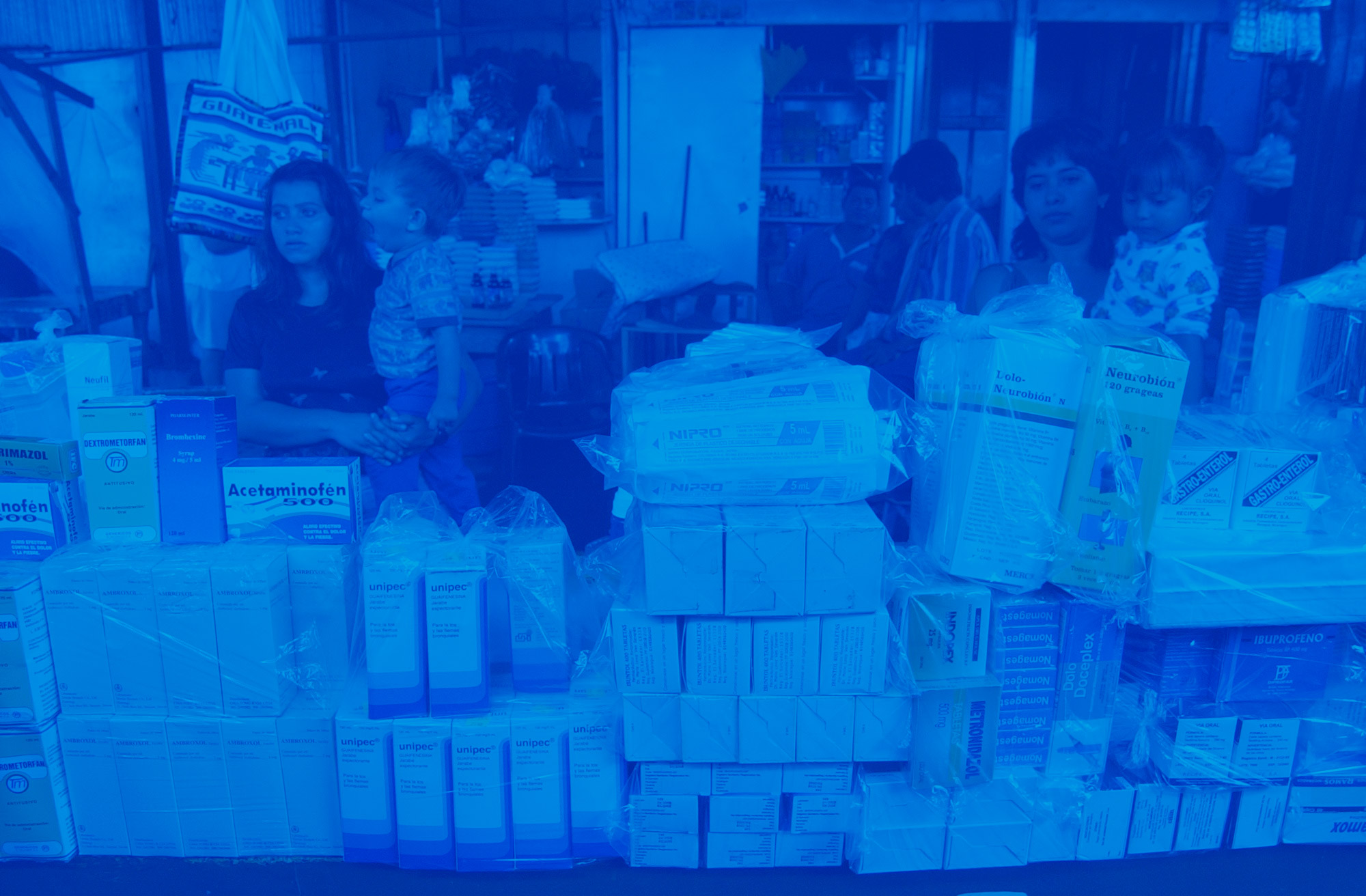
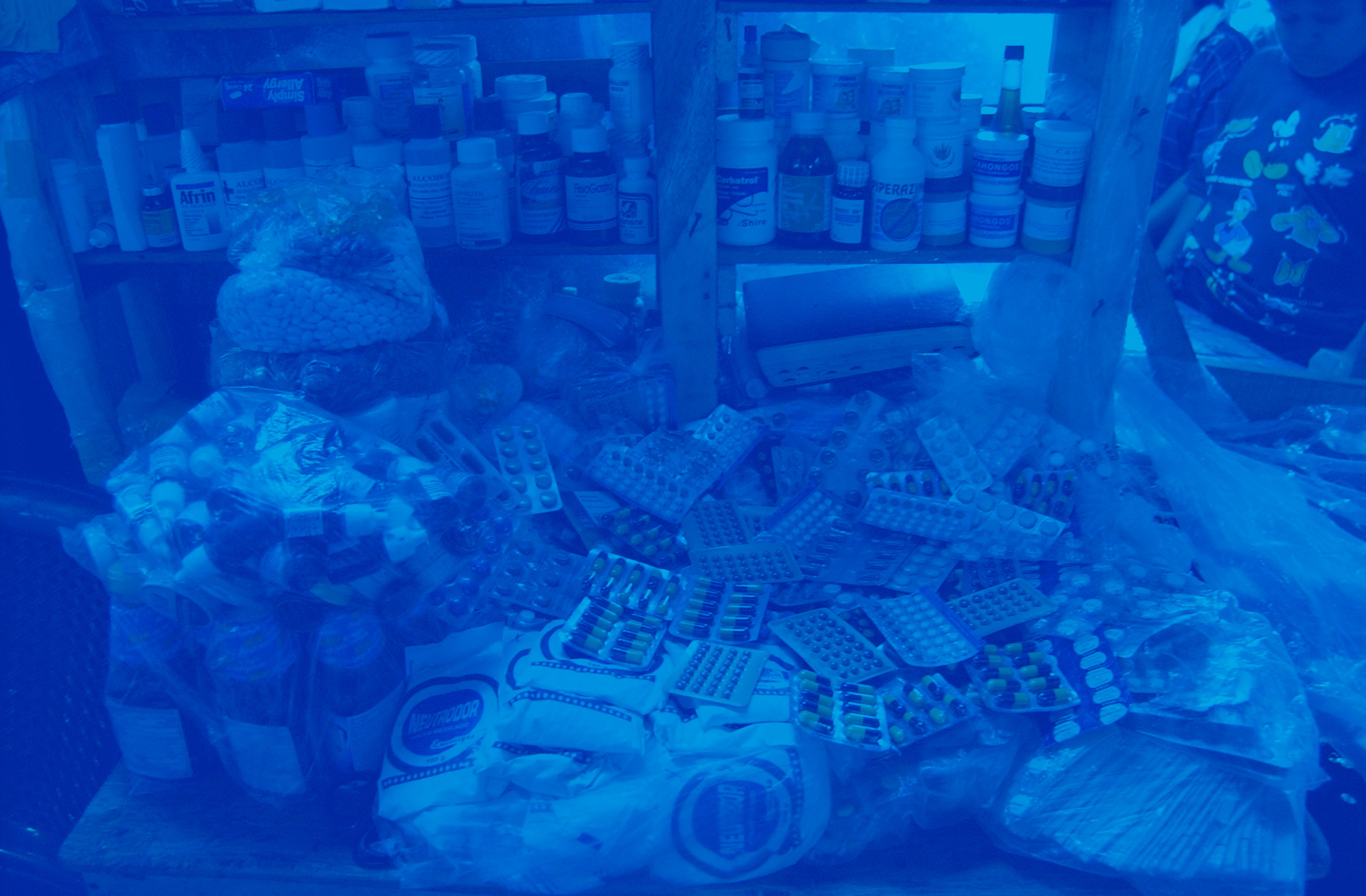

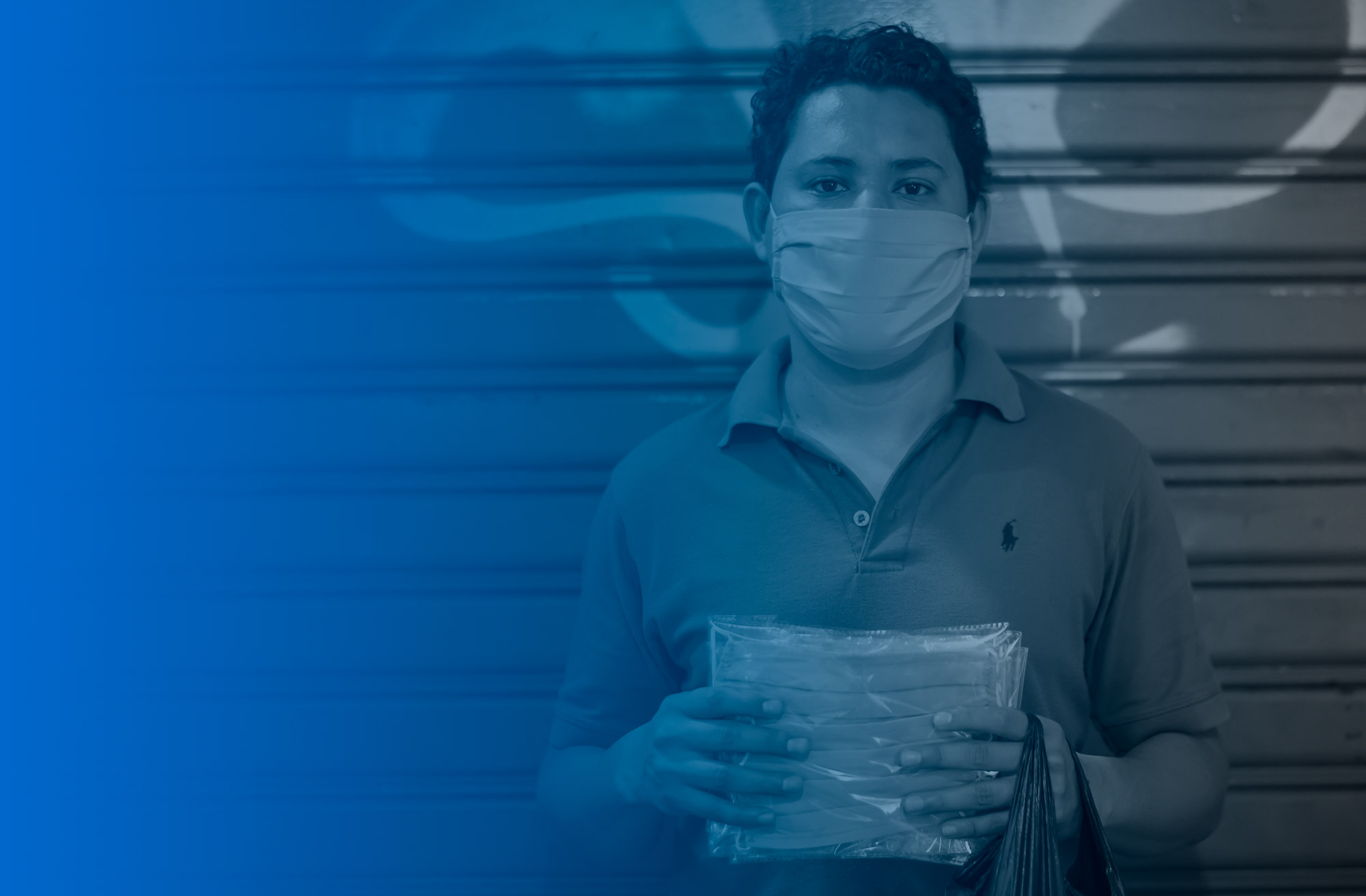
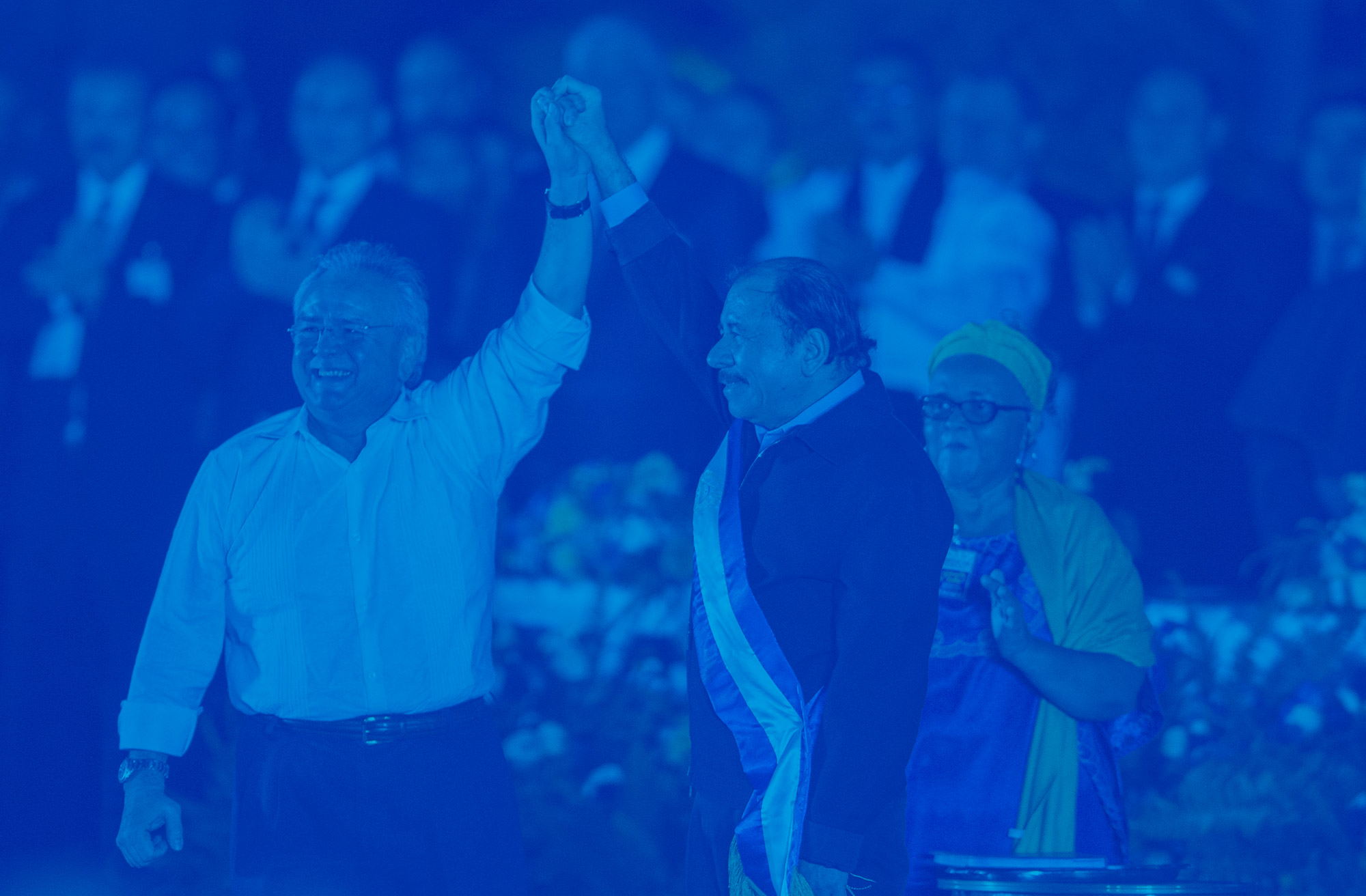

The Ministry of Health awarded contracts to companies controlled by Social Security officials or the inner circle of other levels of the government to face the emergency that Daniel Ortega minimized.
Three months after Nicaragua reported the first coronavirus case, the Ministry of Health urgently bought medicines and medical supplies costing more than ten million dollars between June and September 2020.
The diligence of the contract was atypical for a government that has minimized the pandemic’s hazard, calling public servers to demonstrations and keeping borders and schools open.
As Confidencial reported afterward, the proceeding resulted from a requirement to access financing of 185,3 million from the International Monetary Fund (IMF).
People in the inner circle of the government’s party have been benefited from the contracting while the highest levels of the government downplay the virus and some institutions, like the Police, have even arrested informal vendors selling eucalyptus leaves as a treatment for the disease arguing that “la covid-19 didn’t exist”...
...Two companies connected with officials, Distribuidora Cruz Azul and Universal Marketing Associates (Unimark), obtained contracts by nearly two million dollars. The other eight million were alloted to: Bühler Pharma SA, Neoethical SA, Generic Pharma GP SA, Farmaceuticas de Nicaragua SA, Yale Healthcare, Cam International Nicaragua, Textiles Saddam International SA, Seven Pharma, Mas Publicidad, Inversiones Ayatal SA, Logistica Ecologica SA and Importaciones Farmaceuticas SA.
The story of Cruz Azul and Unimark allows to explain the lack of transparency involved in the public procurement system in Nicaragua, in which the institutions neither explain the growth of companies where public servers are partners nor is possible to gather updated information about the changes of shareholders in the same due to the restrictions in the Mercantile Registry, or in the courts where changes in the constitutive pact can be completed, as in the case of capital increase.
According to contracts with the Ministry of Health, the representative of the agreements with Cruz Azul is Napoleon Antonio Ortega Balladares, a former vice-minister from this entity during this government who also worked at the Nicaraguan Social Security Institute (INSS).
Ortega Balladares is the tip of the iceberg of a network formed by government officials who are questioned for their participation in the medical business in their personal capacities or as INSS representatives.
As per tax reporting accessed for this research, Roberto Lopez Gomez, current Nicaraguan Social Security Institute president was a majority shareholder of Cruz Azul distributor until 2014 (60 percent of the shares).
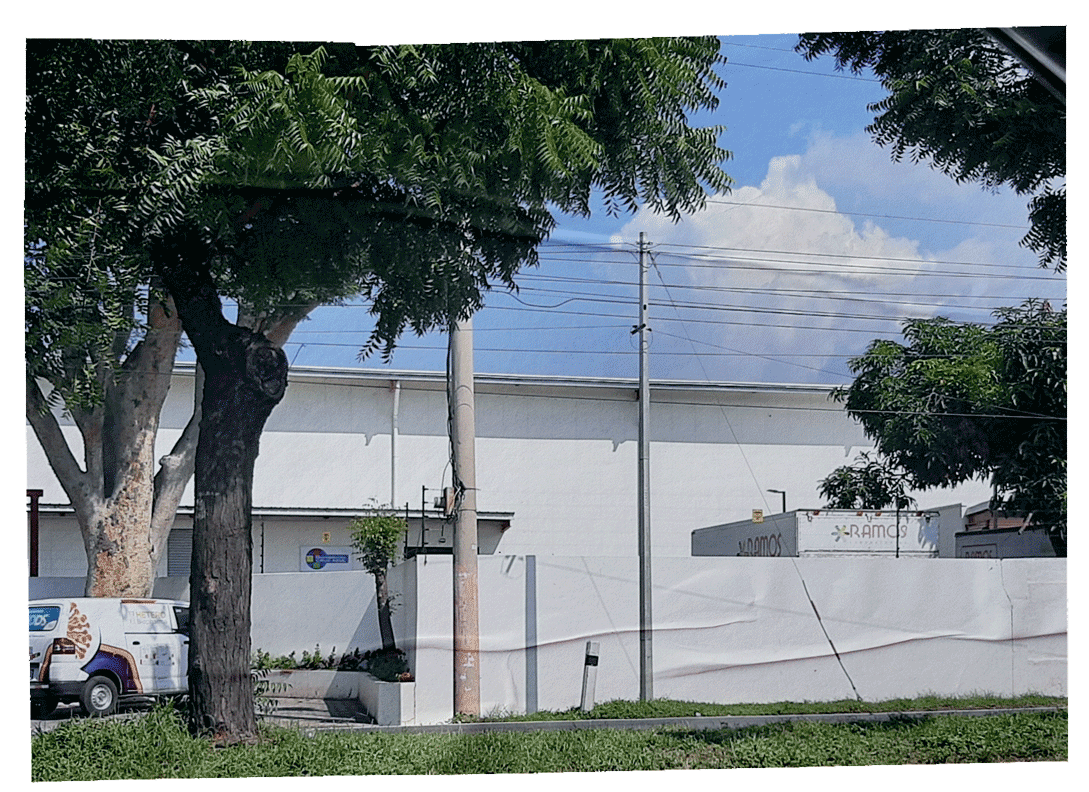
Cruz Azul's office, represented by a health vice-minister who now has business with that state entity, is located on the new road from Leon to Managua.
The other partners at the time were Rafael Martin Rivas Ramirez (20 percent of the shares), Lester Roberto Luna Raudes (19 percent), and Silvio Romeo Morales Parajon (one percent). Rivas Ramirez is the Financial Operations deputy director at Social Security, Luna Raudes is the legal advisor, and Morales Parajon is the director of the hospital "La Fraternidad", a Health Care Services Supplier (HCSS) in Leon, at the West of Nicaragua.
The obtained tax data show that former Employment Minister Jeannette Chavez was the legal representative of Cruz Azul until September 2016. She is also a former director of Social Security, where the rest of the shareholders work at. Though, when calling Cruz Azul's offices, they denied her working there and identified former Health vice-minister Napoleon Ortega as the representative.
Jose Pallais, a political opponent and former president of the Justice Commission between 2007 and 2012, el, assures that if the officials participate in their personal capacities they may violate the restriction they have to contract with the State. In the case of participating on behalf of the INSS, the question is different: how do these investments in this institution are profitable as its finances have a deficit of 182.3 million dollars for this year and a forecasted one of 229.1 million for 2021?
Possible doubts Cruz Azul case were not clarified by the INSS president. The Security legal advisor, Luna Raudes, who is a shareholder in the Company beneficiary of Minsa (Health Ministry), briefly said on the phone: “So, why don’t you call Cruz Azul people? There are those in charge of such”.
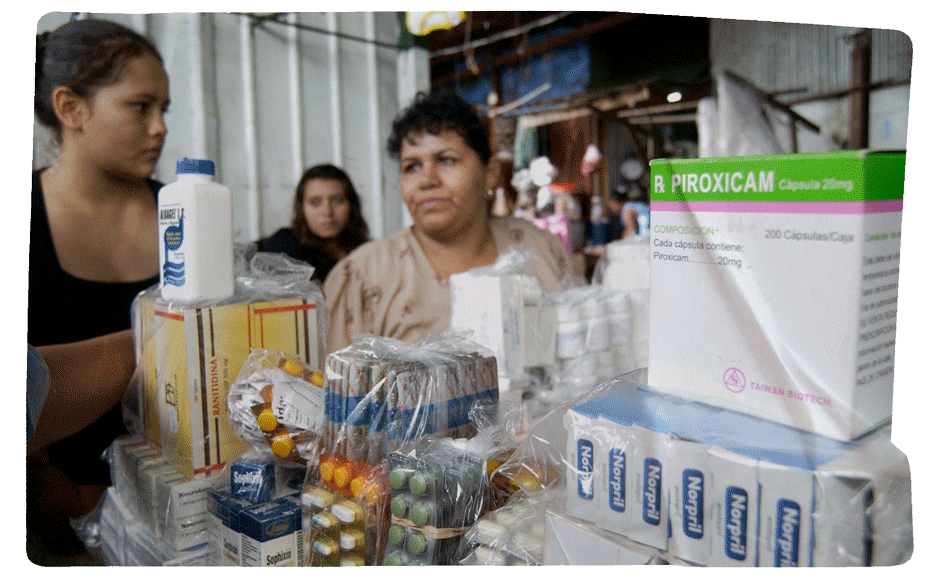
Medicines sale at Managua markets during the first months of the pandemic.
Luna Raudes refused to confirm that it was about a Security Company and recommended talking to the president of the entity.
Social Security makes part of the National pharmaceutical sector since 2008, after founding another medicine distributor in partnership with the Army and the Police Force, Farmaceuticos y Conexos (Farcosa), bought Ramos Laboratories in 3,1 million dollars as well as Rarpe Laboratories in a sum not disclosed to the public while contributed with 7,3 million dollars to the foundation of the Mechnikov Institute with Rusia, whose authorities last year said they were able to produce the covid-19 Sputnik vaccine in Nicaragua.
Unimark, instead, was a usual call center established in 2006 by Alicia Saenz Marenco, an adviser to Gustavo Porras, president of the National Assembly, and became a successful medicine business a year later after Ortega rose to power.
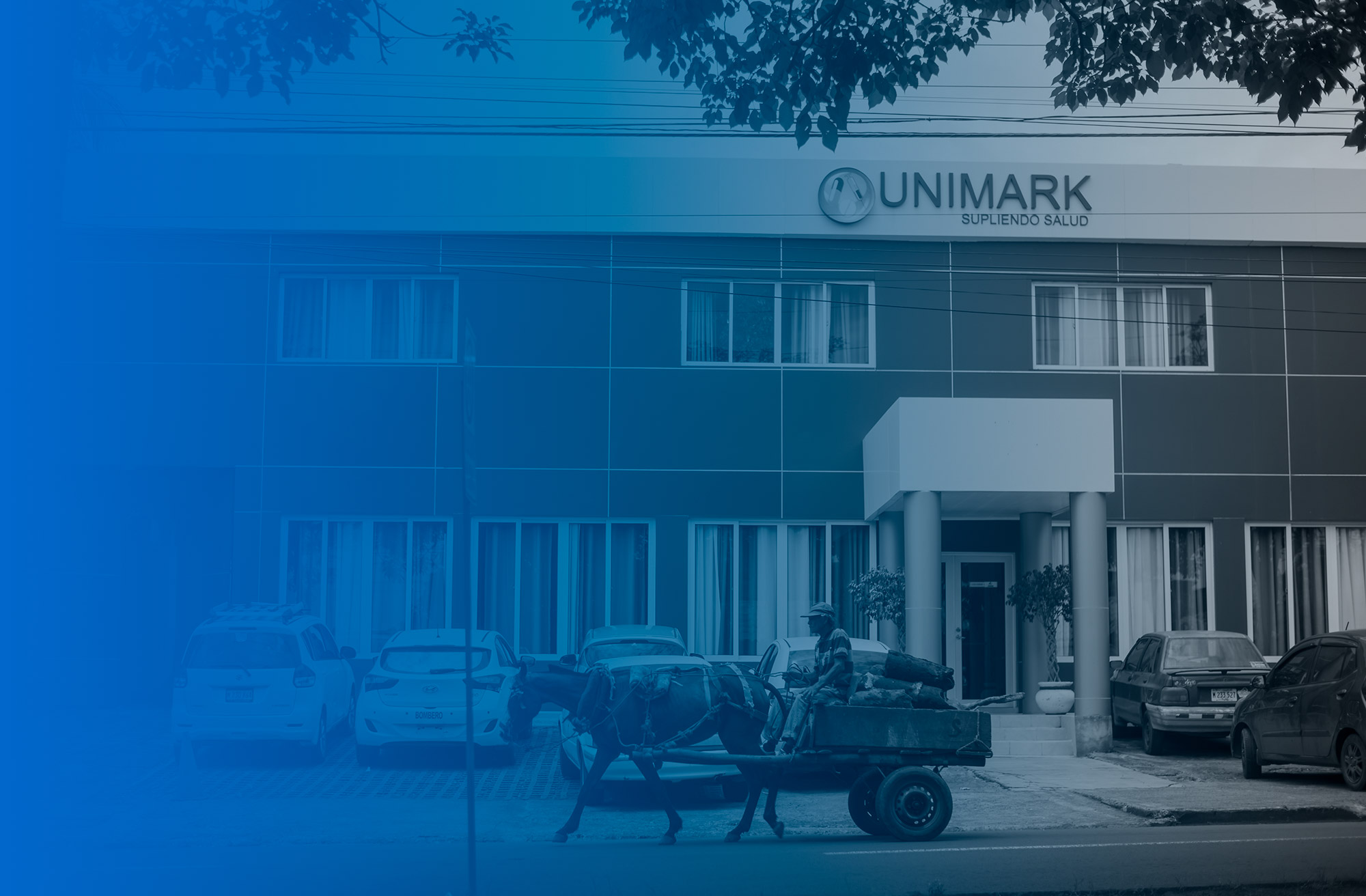
The shade of a former vice-minister in business with the State
Universal Marketing Association (Unimark), the other company that benefited from the estate contracts during the pandemic, was established in 2006 as a call center and a year later became a medicine distributor. Its founding act states that one of its founding partners is Alicia Saenz Marenco, former INSS vice-president at the beginning of this government, and Mr. alvaro Saenz Galo.
Saenz Marenco has been historically related as an advisor to the president of the National Assembly, Gustavo Porras, who for decades was the link of the FSLN for looking at health and social security issues from his position as president of the Health Commission.
For more than a decade of operation, Unimark has been pointed out by media in Nicaragua due to its millionaire contracts with both, the Ministry of Health and the INSS, adding up to five million dollars between 2009 and 2017. Eventually, the company has stated that Saenz Marenco is no longer a partner and that it is held by another founding partner living in the United States. They also argue that they participate in biddings where there is competition with no political factors involved.
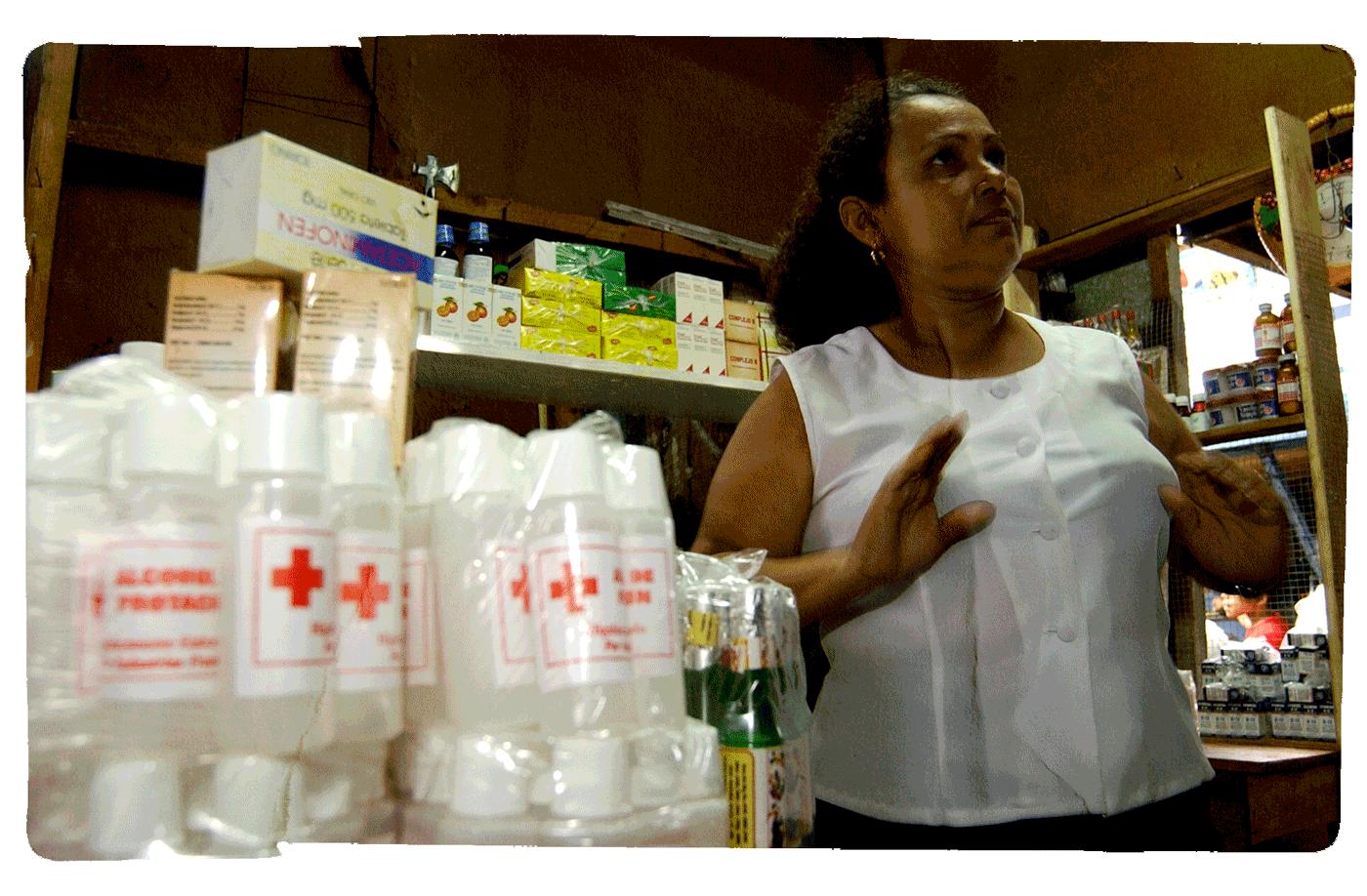
Alcohol, in all its presentations, was one of the most demanded products by the population.
CONNECTAS tried to interview Unimark authorities, led by manager Francisco Sanchez, who accepted to receive a journalistic team. Nonetheless, when at their facilities, they did not accept any question not included in an interview agenda previously sent. They restate their position to the public opinion.
In the Electronic Administrative Contract (Siscae), where information about state contracts can be found in some cases, it can be confirmed that Cruz Azul and Unimark were contracted seven times between June and September 2020, during the health emergency.
In the case of Cruz Azul, it secured three contracts —summing 1.2 million dollars— and, contrary to What they assure in their speech about competing with other entrepreneurs, there was no bidding in two of them. The third contract was of lesser value and resulted from a tender for regularly supply Minsa.
They supplied from chloroquine to surgical gowns to stock health care units. The most noteworthy aspect of these contracts is that in two of them Cruz Azul bought medicines from Ramos Laboratories that the INSS also owns.
| Contract | Amount in cordobas | Amount in dollars | Award | Contract form | Simplified tender or contracting number | Concept |
|---|---|---|---|---|---|---|
| 220-06-07-2020 | C$ 34.209.560 | $ 988.715 | Cruz Azul Distributor | Simplified contracting | CS-10-04-2020 | Purchase of medical supplies for Covid-19 units |
| 309-22-09-2020 | C$ 9.575.983 | $ 274.776 | Cruz Azul Distributor | Simplified contracting | CS-13-05-2020 | Emergency purchase of medicines and laboratory supplies |
| 176-16-06-2020 | C$ 891.937 | $ 25.778 | Cruz Azul Distributor | Public tender | LP-03-02-2020 | Purchase of medications for regular supply |
| TOTAL | C$ 43.786.434 | $1.263.516 | -------- | -------- | -------- | -------- |
Unimark also secured three contracts that amount to 597.508 dollars, one of them not bided. There is one last contract for 14.000 dollars awarded to Innova Industrias S.A., but the money ended up in the same distributor as the direct importer of the product. Missing information is there as well in this case. Even though the contracts were advertised in the Siscae, not all the contracts were uploaded as it is done with other companies.
| Contract | Amount in cordobas | Amount in dollars | Award | Contract form | Simplified tender or contracting number | Concept |
|---|---|---|---|---|---|---|
| 199-23-06-2020 | C$ 7.535.949 | $ 217.802 | UNIMARK | Public tender | LP-06-03-2020 | Purchase of supplies for the National Center for Radiotherapy |
| 205-26-06-2020 | C$ 2.314.336 | $ 66.888 | UNIMARK | Contratacion simplificada | CS-09-03-2020 | Purchase of medical supplies for health units |
| RM 271-2020 | C$ 10.996.494 | $ 312.817 | UNIMARK | Public tender | LP-03-02-2020 | Purchase of medications for regular supply |
| TOTAL | C$ 20.846.779 | $ 597.507 | --------- | --------- | --------- | --------- |
| Contract | Amount in cordobas | Amount in dollars | Award | Contract form | Simplified tender or contracting number | Concept |
|---|---|---|---|---|---|---|
| 192-19-06-2020 | C$ 502.862 | $ 14.533 | INNOVA INDUSTRIAS | Public tender | LP-03-02-2020 | Purchase of medications for regular supply |
Procurement expert from the Transparencia Nicaragua group, Dayra Valle, tells that the simplified contracting method used by the Minsa to allot part of these contracts, being legal at emergencies, makes way to “benefit a certain group of suppliers”. In this case “one sole supplier is invited” but, in some cases, several suppliers appear, and awarding is done by batches now that biding is done through the Nicaragua Compra website.
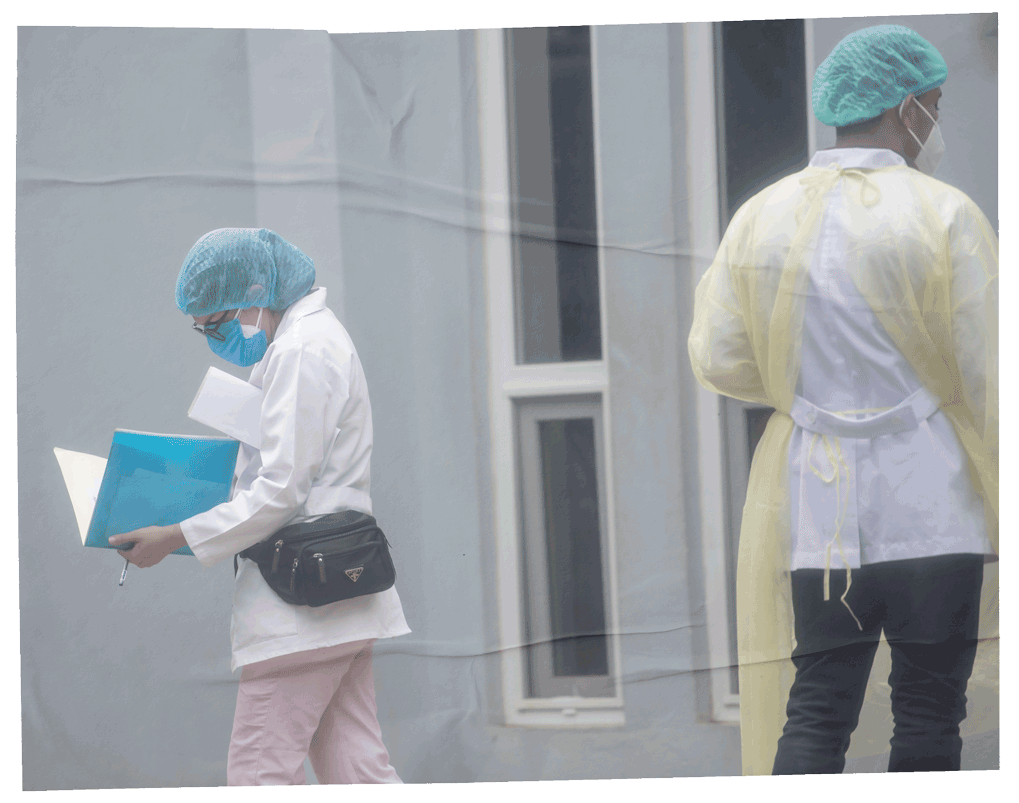
In Nicaragua, surgical masks cost up to 0,60 dollars each. Before the pandemic, they cost no more than 0,12 dollars.
A 260 million-dollar business
Even though Nicaragua monthly invests less than sixty cents of dollar to buy medicines per capita, the import of pharmaceutical products business moved, in general, 258,8 million dollars until August 2020 and with a growth trend during the pandemic.
The statistics from the Central Bank of Nicaragua (BCN) show that until last August, the medicine business grew 14 percent compared to the 222.6 million dollars imported in the same period of 2019. Statistics, however, do not give disaggregated data about importers and products supplying the local market, which contributes to a lack of transparency from that sector side.
Medicines and pharmaceutical products importations according to the Central Bank of Nicaragua.
Total 2018 = 258.1 / 2019 = 222.6 / 2020 = 258.7
The Nicaraguan Foundation for Economic and Social Development (Funides), a center for thinking from the private sector in Nicaragua, undertook a qualitative analysis of the “Situation and Perspective of the Commerce and Services Sector”, in which they point out that until de second semester of 2020, the pharmaceutical sector was the one who has the highest growth during the pandemic with a boost of 27,5 percent, followed by the agricultural sector with 17,8 percent, while the other commerce sectors have shrunk as far as 56 percent.
The citizens have it difficult to ensure minimal health conditions while the healthcare sector companies benefit from the situation. Rene Davila was fired when his employers found out he caught the virus. It was very difficult for him to buy the most basic goods such as surgical masks. “We buy each box for 800 cordobas (23 dollars)”, he explains. The medical advice was, though, that “everyone at home had to use them”, thus making them “run out of them quickly because we are six in this house”.
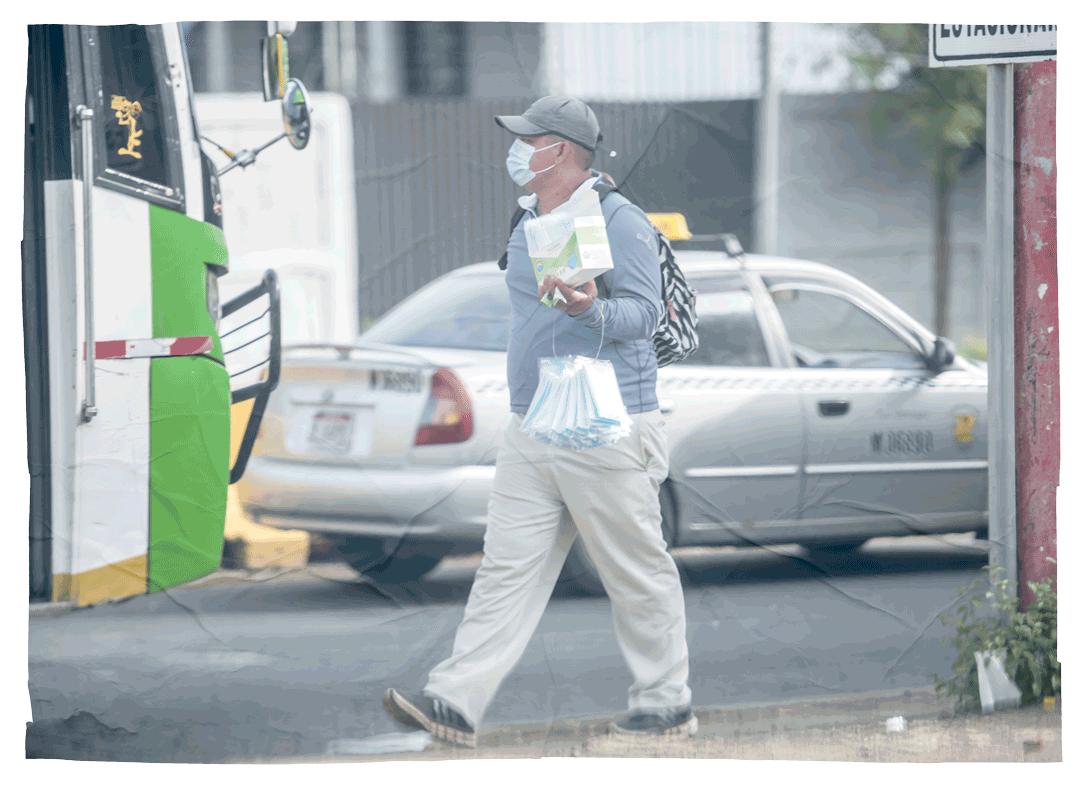
Rooms to isolate patients with symptoms similar to those of covid-19 were set in each hospital.
Davila is one of many Nicaraguans who got sick but didn’t go to a hospital in the healthcare system because “I would have died there” he says. For this reason, he spent all of his savings paying a private physician, medicines, medical supplies, and cleaning products. His case did not need a hospital stay but he assures that in three weeks “I spent 12.000 cordobas (345 dollars)”, the amount goes beyond the minimum wage in Nicaragua of 7.861 (226 dollars).
The prices of medicines such as paracetamol, ibuprofen, flu medicines, azithromycin, and aspirin started rising without action-taking by the Ministry of Development, Industry, and Commerce (Mific), the authorized entity for regulating prices. CONNECTAS submitted a request to interview Minister Orlando Solorzano for this report, but no reply was received.
Failures during the pandemic
From informal vendors arrested to public servers demonstrations, the Central American country has been part of the international agenda during COVID-19.
The government of Nicaragua challenges the coronavirus pandemic with a massive demonstration called “Love in the time of Covid-19”.
The Ministry of Health (Minsa) reports the first covid-19 in Nicaragua, centralized information about the issue, and notifies that all sick persons are to be treated in public hospitals.
Two weeks after the first Covid-19 case was reported in Nicaragua, President Daniel Ortega removed the Health Minister, doctor Carolina Davila, and appointed doctor Martha Reyes in her place.
The Pan American Health Organization (PAHO) warns that Minsa's secrecy on covid-19 information prevents from knowing the impact of the pandemic in the country.
President Daniel Ortega criticized Covid-19 preventing measures and described them as “extreme measures” and “radical” that would kill the country, economically speaking.
The National Police arrested a group of street vendors who were selling eucalyptus leaves as preventing medicine for covid-19.
The Superior Council of Private Enterprise (Cosep) condemn that surgical masks, mechanical ventilators, and oximeters, three medical supplies, were taxed with the value-added tax (VAT).
Minsa charges a fee of 150 dollars for making covid-19 tests to people interested in traveling abroad.
President Daniel Ortega reappears using a mask after being absent for 39 days. Implicitly recognized the danger that pandemic represents but say no Word about preventive measures.
Two hundred Nicaraguans who were stuck in Costa Rica were able to return to their country after Ortega’s government denied entry for not having a coronavirus test.
Marvin Pomares, director of the National Institute for the Defense of the Consumer (Indec), told that the medicines’ price speculation kept going until last July now that during its last inspection, completed on the 9th of that month, they visited 125 of the 2.000 drugstores in the country and found that medicines such as azithromycin, that had a price of five cordobas before the pandemic, now is sold in packets costing 40 cordobas, and aspirin, being for one cordoba, now is sold in packets of four for 25 cordobas. “When we talked to the owners of the drugstores they said they had to sell the product for that price because they were getting it costly”, Pomares explains.
However, Felipe Gurdian, president of the Asociacion de Farmacias Unidas de Nicaragua, said that there was indeed a rise in the price of some medicines at the beginning of the pandemic, but they are stabilized at the moment, and some of them have a minimal increase of one cordoba. “What happened during critical moments was that some items were in short supply, distributors sold a little more expensive, and we had to sell a little more expensive. But including only the profit margin, is not that drugstores were changing the prices as mentioned in social media”, said Gurdian.
Rossana Teran, then president of the Asociacion Nicaragüense de Distribuidores de Productos Farmaceuticos (Andiprofa), said last March to local media that shortage in medical supplies was the result of “a very high demand” and given that such products usually are imported from China, “manufacturers had to first supply that market before exporting”. Teran did not either answer a request submitted by this journalistic team to talk about this topic.
Last July, the then president of the Superior Council for Private Enterprises, the main business association from Nicaragua, Jose Adan Aguerri, condemn that the government taxed the import of masks, ventilators, and oximeters with the value-added tax, supplies that are necessary for treating the patients.
Former deputy Armando Herrera, who acted as vice-president for the Health Commission between 2012 and 2016, considers that the way Minsa undertook public contracting within the pandemic context “is absolutely contradictory”. “How is it possible that medicines we use for treating COVID have been taxed and at the same time the stop bidding?”, he wonders.
Herrera says that the State of Nicaragua favors some medicine import companies “because all of them are involved (the government officials)”. He criticizes the double standard: facilitate business and, on the other side, arrest eucalyptus leaves vendors which is something that “has no name, it is very cruel”.
Given the lack of transparency in the procurement system of Nicaragua, the is no way to independently confirm that the contracts awarded comply with the principle that it was the best option for the society and there was not just a lucrative prescription.
CONNECTAS editorial note:
A previous version of this note mentioned that Cruz Azul legal representative until 2016 was former Minister for Employment Jeanette Chavez. Data revision showed that she was homonymous. The person listed in the documents is Jeanette Chavez Vasquez, and the former official is Jeanette Chavez Gomez. The current text was corrected on February 12th, clarifying the situation.
At the medicine business and the medical sector with an INSS in crisis
Companies set up by Social Security, or purchased by it, are added up to another company, founded by a former advisor of deputy Gustavo Porras, to be part of a millionaire business.
Deputy advisor, Alicia Saenz Marenco, founds a call center named Universal Marketing Associates (Unimark) together with her brother alvaro Saenz Galo with a startup capital of 5.600 dollars.
Sandinista Daniel Ortega takes power and appoints Saenz Marenco as INSS vice-president.
The advisor is substituted and Isabel Green Casaya, Porras’ sister-in-law, is appointed as Security vice-president.
The INSS associates with the Instituto de Seguridad Social y Desarrollo Humano (ISSDHU) and the Instituto de Prevision Social Militar (IPSM), financial division of the Police and the Army, to create the distributor Farmaceuticos y Conexos (S.A).
Social Security purchased Ramos Laboratories for 3.1 million dollars.
Local media confirmed the sale of Rarpe Laboratories to the INSS without knowing the amount of the transaction.
The INSS partnered with the Russian Federation to create the Instituto de vacunas Mechnikov. The construction cost 21 million dollars, seven were provided by Nicaragua, and the rest by Russia (14 million).
Gustavo Porras is appointed as president of the National Assembly.
Research by La Prensa newspaper informed about state contracts in favor of Unimark for 5 million dollars between 2009 and 2017.
INSS purchases SuMedico for 5 million dollars. The participation in these service providers has increased with the purchase of Cesar Amador Kull Hospital, the Cruz Polyclinic linked with the former commander Tomas Borge at the time, among others. The INSS administers this business through the Servicios Medicos Especializados society (Sermesa).
The United States sanctions Porras, who is considered the main political operator of the presidential couple.
The United States sanctions Roberto Lopez, INSS president, under corruption allegations having among them “favoring contracts for construction companies affiliated with the government and pharmaceutical suppliers”.
The government admits that the entity will close 2021 with a deficit of 229.1 million dollars, after three years of recession, and despite the reform of the system that caused the political crisis of 2018.

